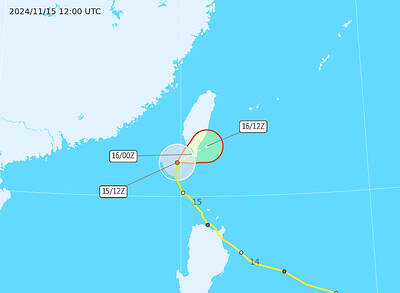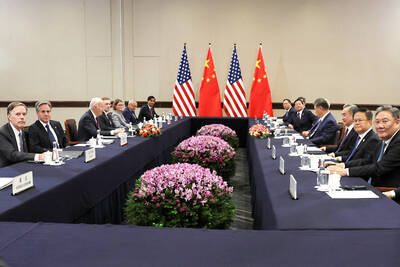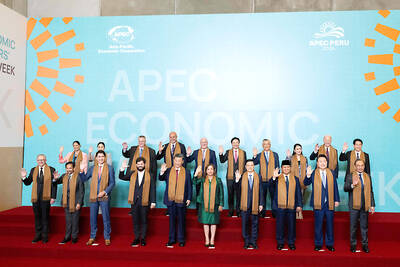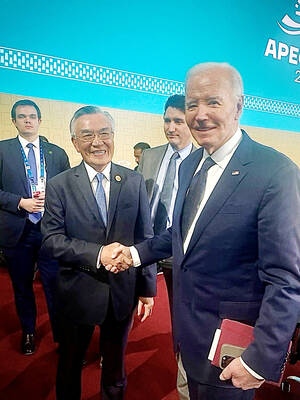The government has conducted tests on animals of a vaccine that could protect people against bird flu and hopes to conduct human trials and be ready for mass production in two years, officials said yesterday.
The National Health Research Institute (NHRI) reported yesterday that, although there are still many steps and procedures before the vaccine is deemed safe, the center's facilities would be ready to commence limited production later this year.
"In the case of an emergency, we would be able to produce 7,000 doses a month, if instructed to do so by the authorities," said Pele Choi-sing Chong (莊在成), the director of the vaccine center at the NHRI.
"We started the program from scratch in August 2005," Chong said. "Now we are ready to go ahead with clinical trials, pending government approval."
The center will be able to produce 100,000 doses of the vaccine on an annual basis in house, but Chong hopes that cooperation with local biotechnology businesses will boost production to the level needed to serve all of Taiwan, and perhaps even overseas markets, in the event of a pandemic.
"We are interested in licensing our technology out to local companies" Chong said. "Part of our mandate is to help the development of the local vaccine industry. The sale of vaccines could earn income for Taiwan."
Unlike the bird flu treatment Tamiflu, which helps to reduce symptoms if administered in the first 48 hours after infection, the vaccine will protect a person for life with two applications -- unless the virus mutates, Chong said.
"Knowing which strain of the virus to protect against is the 64-million-dollar question," Chong said.
A lot more than US$64 million has been spent worldwide in trying to protect the world's population from a potentially devastating bird flu pandemic. According to Chong, Taiwan's government spent NT$40 million, or roughly US$1.2 million on his program alone. Meanwhile, he estimates that the US has spent US$1.6 billion, and Europe between US$300 million and US$600 million on bird flu research and protection measures.
Millions of birds have either died or been culled in China and Southeast Asia as a result of the disease.
The disease is first known to have made the jump from chickens to humans in 1997 and registered a 70 percent mortality rate among the first 70 people known to have been affected. But according to Chong, a high mortality rate could be a blessing in disguise.
"With a high mortality rate, the virus dies with the host before it could be carried very far," Chong said. "What could be more dangerous is a virus that only kills 5 to 10 percent of those infected, allowing the rest to spread the virus to others."
Chong said that recent bird flu sufferers are mostly people who have had repeated direct contact with infected birds because the virus cannot yet effectively attach itself to receptors on human cells.

Typhoon Usagi yesterday had weakened into a tropical storm, but a land warning issued by the Central Weather Administration (CWA) was still in effect in four areas in southern Taiwan. As of 5pm yesterday, Tropical Storm Usagi was over waters 120km south-southwest of Oluanpi (鵝鑾鼻), the southernmost tip of Taiwan proper, and was moving north at 9kph, CWA data showed. The storm was expected to veer northeast later yesterday. It had maximum sustained winds of 101kph, with gusts of up to 126kph, the data showed. The CWA urged residents of Kaohsiung, Pingtung County, Taitung County and the Hengchun Peninsula (恆春) to remain alert to

ONE LAST TALK: While Xi said that Taiwan was a ‘red line,’ Biden, in what is likely his last meeting with Xi as president, called for an end to China’s military activity around Taiwan China’s military intimidation and economic coercion against Taiwan are the main causes of tensions that are destabilizing peace in the Taiwan Strait, Taipei said yesterday while thanking US President Joe Biden for expressing Washington’s firm stance of maintaining peace and stability in the region. Biden and Chinese President Xi Jinping (習近平) met on Saturday for their third meeting and their first talks in seven months on the sidelines of the APEC forum in Lima, Peru. It was likely Biden’s last meeting as president with Xi. During their conversation, Biden reiterated the US’ opposition to any unilateral change to the “status quo” from either

Taiwan would participate in the 2026 APEC summit to be hosted by China after Beijing promised it would ensure the personal safety of attendees, Taiwanese national security sources said yesterday. The APEC Leaders’ Machu Picchu Declaration announced yesterday said that China would host the APEC summit in 2026. Beijing proposed hosting the summit shortly before this year’s gathering began on Friday, a national security official said, speaking on condition of anonymity. Many APEC members expressed concerns about China hosting the event and said that prior communication over the decision was insufficient, the official said. Taiwan brought up concerns about legal “guidelines” China announced in

MEET AND GREET: The White House, which called the interaction ‘just a handshake,’ did not immediately respond to a request for comment on whether Biden planned to visit Taiwan’s envoy to the APEC summit, Lin Hsin-i (林信義), on Friday invited US President Joe Biden to visit Taiwan. During the APEC Leaders’ Informal Dialogue, Lin, who represented President William Lai (賴清德) at the summit, spoke with Biden and expressed gratitude to the outgoing US president for his contribution to improving bilateral ties between Taipei and Washington over the past four years, the Ministry of Foreign Affairs said. Lin and Biden exchanged views during the conversation, with Lin extending an invitation to Biden to visit Taiwan, it said. Biden is to step down in January next year, when US president-elect Donald Trump is